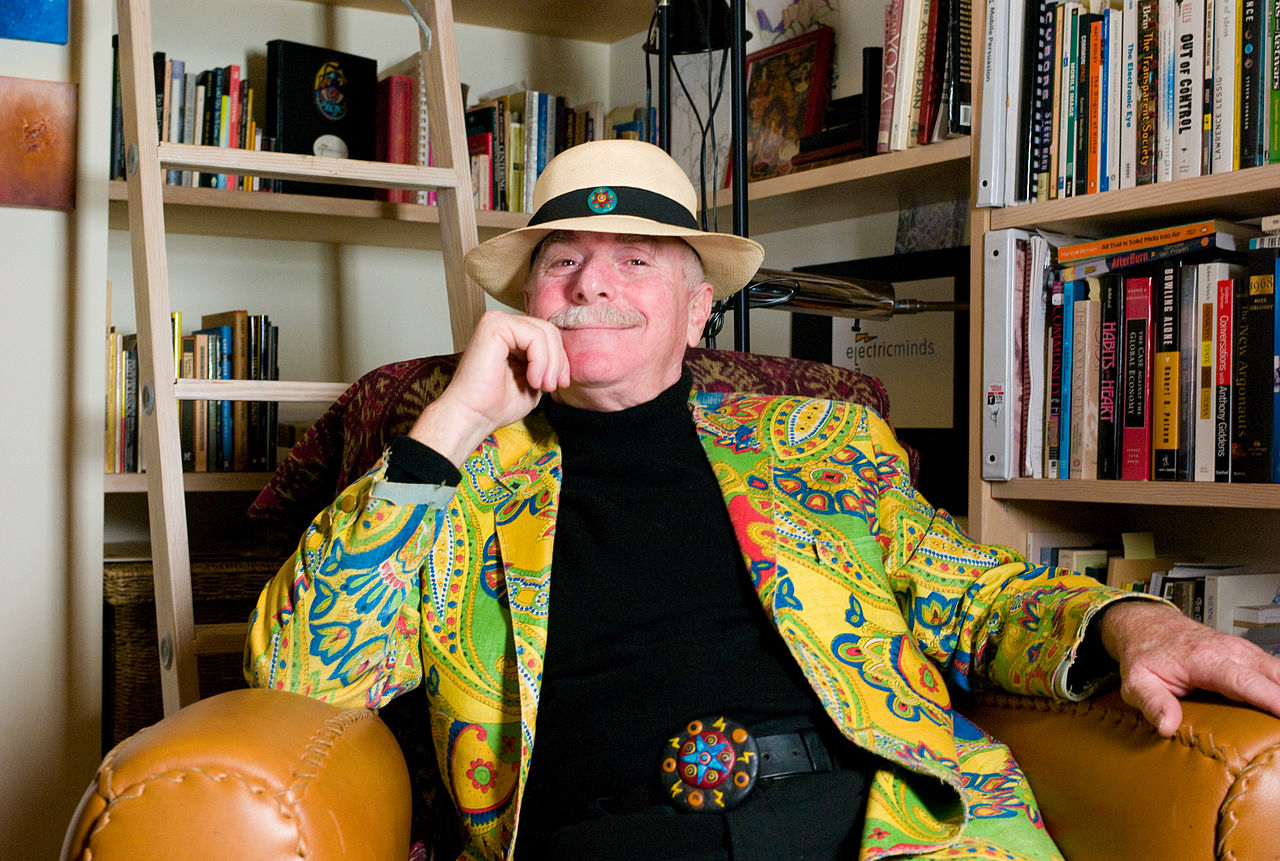The first step is awareness
November, 2020

Imagine the Possible is a podcast about the role of design in advanced technology. This is the very first episode; an interview with Howard Rheingold. Howard is a good friend and he’s one of the clearest thinkers in tech. Howard talks about the early pioneers in Silicon Valley, the current state of social media, online learning, and the future of technology.
Apple Podcasts · Spotify · RSS
Show notes
- Find Howard on rheingold.com and on Twitter.
- Take a virtual tour of Howard's studio.
- Support Howard on Patreon.
1:30 - The early pioneers in Silicon Valley
- Jef Raskin and the early Macintosh project.
- Alan Kay and the Dynabook.
- Microelectronics and the Personal Computer, Kay, 1977 (PDF).
- Video interview with Bob Taylor and John Markoff.
- The Computer as a Communication Device, Licklider and Taylor, 1968 (PDF).
- Xerox PARC and how Howard got access to their Alto prototype.
- Doug Engelbart and the intersection of computers and human consciousness.
- Augmenting the Human Intellect, Engelbart, 1962 (PDF).
- Tools for thought, Rheingold, 1985 (Book revised in 2000).
9:30 - The power of rule-breaking, hackers, and freedom.
- AnnaLee Sexenian explains Silicon Valley's success.
- Regional Advantage, Sexenian, 1996.
- Bill Joy and how SUN was started with UNIX.
- The Virtual Community, Rheingold, 1993 (Book)
- The Closed World, Paul Edwards, 1996.
- Turing’s cathedral, George Dyson, 2012.
- Sketchpad demo by Ivan Sutherland and origin of computer graphics.
- The Mother of All Demos by Doug Engelbart, 1968.
- The Secret History of Silicon Valley by Steve Blank, 2008.
17:30 - Social media's impact on culture.
- Howard on Virtual Communities and the social cost of network effects.
- Net Smart, Rheingold, 2012.
- Crap Detection and the importance of digital literacy.
- The Future of The internet and How to Stop It, Jonathan Zittrain, 2008.
- Steve Jobs made a great plea that technology alone is not enough.
36:00 - The future of education and technology.
- Howard on how to teach online.
- Teaching as a Subversive Activity, Postman and Weingartner, 2011.
- Peeragogy, a handbook for online learning.
- The Six-Lesson Schoolteacher, Gatto, 1991.
- Brian Alexander and Cathy Davidson are great thinkers on the future of education.
- Browse #edutech on Twitter and build a personal learning network.
- Tina Lee keeps popping up.
- Crypto and how the future may be more decentralized than we think.